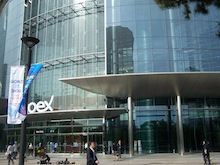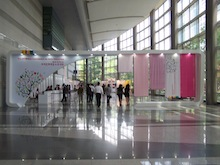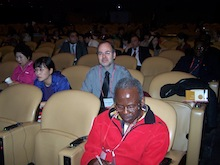Copyright © PSALMUS HUMANUS Association for Arts Education, 2002–2024.

PSALMUS HUMANUS
Association for Arts Education
Supporting by:
Updated: 25 Nov 2025.
Ministry of
Human Capacities
Hungarian
Academy of Arts
NEWS AND EVENTS
LATEST NEWS
OUR VOCATIONAL TRAINING COURSE (30 hours)
Talent Care in the spirit of Kodály. Integrated art education in the 21st century
Organized by the Music Department of Eötvös Loránd University (ELTE) Faculty of Humanities and the Psalmus Humanus Association for Arts Education
Aim of the course: The participants will be introduced to the various application options of arts education in public education. Through practical examples and introductory workshops, they will understand the positive impact of using the customs of Kodály on teaching general education subjects successfully (writing, reading, mathematical abilities, learning languages, etc.). In the light of this knowledge, participants will be able to choose and apply the methods that are most suitable for their students and what fit their interests and personalities best.
Date: 21-23, September, 2018
Location:
ELTE University, Faculty of Humanities, H-1088 Budapest, Múzeum krt. 4.
Contact:
Gábor BODNÁR, head of the Music Department
News in 2018
2ND ELTE Workshop for Arts Education
Date: 25–26 May, 2018
Location:
ELTE University, Faculty of Humanities, H-1088 Budapest, Múzeum krt. 4.
Contact:
Gábor BODNÁR, Workshop Chairperson, music@btk.elte.hu
Participants can apply on the "Online registration" page till the 20th of May.
(http://mpk.elte.hu/en/?pid=registration/online_registration).
The "early bird" registration deadline is the 30th of April.
Zsuzsa Dr. PÁSZTOR's writing appeared in Issue 2018/1 "Magyar Művészet" published by Hungarian Academy of Arts
What is the Kovács Method?
The Kovács Method, also called "The Care of Musical Work Capacity" complements and is a part of the domain of music pedagogy. It has evolved during the second half of the twentieth century in Hungary. The Kovács Method is an integral part of the lifestyle of a healthy musician, a complex system of training, erudite knowledge and a deeply humanistic approach.
The purpose of the Kovács Method is to serve the people of music, to help them meet their professional and personal obligations, to maintain and develop their physical, spiritual, and mental abilities necessary to carry on a successful life and career, and to prevent occupational impairments.
The premise of the Kovács Method is that the prerequisite to high performance is the evenness of the human personality (bodily, emotional, intellectual aspects) and the optimal balance of the of the nervous system and hormonal functions in the human organism. During the course of life this complicated and sensitive system is impacted not only by positive events, thus the human organism must be ceaselessly looked after in order to maintain its functional balance in the long run.
The Kovács Method helps its participants to make taking care of themselves an essential part of their lives. It teaches students and adults to shape their lifestyles, work schedules, exercise regimens and relaxation in a way that enables them to cope with the lives they have to live, and to be successful and happy while fulfilling their vocation and life mission.
News in 2017
1st ELTE Workshop for Arts Education
24 June 2017, Saturday
Thematic papers: New methods for 21th century music education
BODNÁR, Gábor: Path to creativity and free self-expression for all the layers of society: The Psalmus Humanus Integrated Arts Education Program.
http://mpk.elte.hu/en/download/EWAE_detailed_progr_2017_06_18.pdf
Main events before 2017
We were participants of a conference in the Preschool Teachers’ Training College of Kikinda (Serbia) – 2013
The Preschool Teachers' Training College of Kikinda organized the International interdisciplinary scientific conference Methodical Days, with the central topic "Competences of Preschool Teachers in Knowledge Society" in Kikinda , on May 25th, 2013. The host of the Conference organized the Methodical Days 2013 in cooperation with Serbian and foreign partners, including the Psalmus Humanus Assiciation of Arts Education.
https://www.youtube.com/watch?v=HJQyFspTaAM&feature=youtu.be
We were visitors of the Maria Curie-Skłodowska University of Arts in Lublin (Poland) – 2012
We received an invitation to 5-9 July 2012 to Lublin, Poland for the closing course of the postgradual training of UMCS. The organizer and preparer of the visit was Prof. Andrea Jaworska who managed the program with great professional competence and attention.
We took part at the 2nd World Conference of Arts Education in Seoul
(South Korea) – 2010
Prof. Gábor BODNÁR member of our Leadership was a participate of the Conference as the only Hungarian participant.
http://www.unesco.org/new/en/culture/themes/creativity/arts-education/world-conferences/2010-seoul


